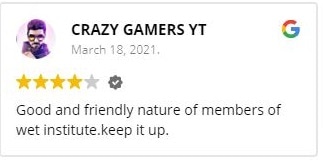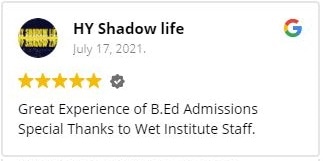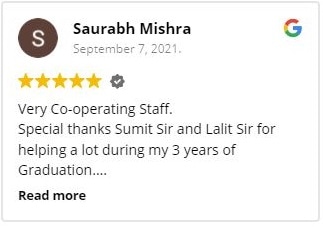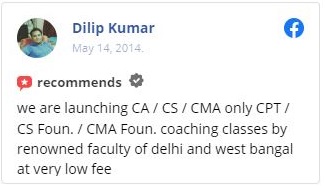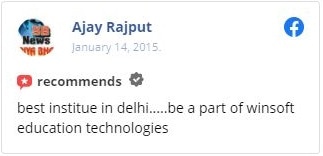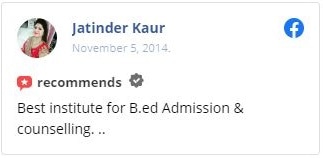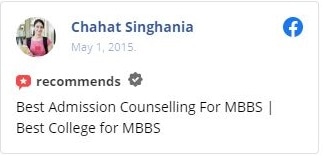MDS (Master of Dental Surgery) Admission from Top Colleges in India: Admission Process, Eligibility Criteria, Fees, Duration, Scope, Syllabus, and Career Opportunities.
MDS (Master of Dental Surgery): Overview
The Master of Dental Surgery (MDS) is a postgraduate program designed for dental graduates who wish to specialize in various fields of dentistry. Typically spanning three years, the MDS program provides advanced training and education, equipping students with the skills necessary to excel in specialized dental practice, research, and academia.
Program Structure
1. Specializations: The MDS program offers various specializations, allowing students to focus on areas of interest, such as:
- Oral and Maxillofacial Surgery
- Orthodontics
- Periodontology
- Prosthodontics
- Pedodontics
- Conservative Dentistry and Endodontics
2. Curriculum: The curriculum includes both theoretical and practical components, covering:
- Advanced Dental Sciences: In-depth study of relevant medical and dental principles.
- Clinical Training: Hands-on experience in specialized areas through supervised clinical practice.
- Research Methodology: Training in research design, implementation, and analysis to contribute to advancements in dental science.
3. Internships and Clinical Rotations: Students are required to participate in internships or clinical rotations in their chosen specialty, gaining real-world experience and enhancing their practical skills.
4. Career Opportunities: Graduates of the MDS program can pursue various career paths, including:
- Specialist Dentist: Practicing in their area of specialization.
- Academic Roles: Teaching positions in dental colleges and universities.
- Research Positions: Engaging in research projects to advance dental science.
- Consultancy: Providing expert advice in clinical settings or healthcare organizations.
MDS (Master of Dental Surgery) Admission: Eligibility Criteria
1. Educational Qualification
- Candidates must possess a Bachelor of Dental Surgery (BDS) degree from a recognized institution. The BDS program should be completed from a dental college approved by the Dental Council of India (DCI) or an equivalent authority.
2. Minimum Percentage
- A minimum aggregate percentage in the BDS degree is usually required, typically around 50%. Some institutions may have specific criteria for different categories (e.g., 40-45% for reserved categories).
3. Entrance Examinations: Candidates must qualify for relevant entrance examinations, which may include:
- NEET MDS (National Eligibility and Entrance Test for Master of Dental Surgery), which is mandatory for admission to many dental colleges in India.
- Some universities may conduct their own entrance exams.
5. Registration with Dental Council
- Candidates must be registered with the Dental Council of India or the respective State Dental Council, which is mandatory to practice dentistry.
6. Additional Documentation: Candidates should be prepared to submit various documents during the admission process, including:
- BDS mark sheets and degree certificate
- Scorecard of the entrance exam
- Identity proof and photographs
- Other relevant certificates as required by the institution.
MDS (Master of Dental Surgery): Admission Process from Top Colleges in India
1. Eligibility Verification
- Ensure that you meet the eligibility criteria, including holding a Bachelor of Dental Surgery (BDS) degree from a recognized institution and meeting the minimum percentage requirement.
2. Entrance Examination
- NEET MDS: Most top colleges require candidates to qualify for the NEET MDS exam, which is conducted annually by the National Board of Examinations (NBE).
- Registration for NEET MDS usually opens a few months before the exam date. Candidates must fill out the application form and pay the exam fee.
3. Entrance Exam Preparation
- Prepare thoroughly for the NEET MDS exam, focusing on topics from the BDS curriculum. Utilize available resources such as textbooks, online courses, and mock tests.
4. Results and Rank List
- After the NEET MDS exam, results are published, and candidates receive their ranks. This rank is crucial for the subsequent admission process.
5. Counseling Process
- Successful candidates must participate in the centralized counseling process conducted by the Directorate General of Health Services (DGHS) or respective state authorities.
- Register for counseling and fill in your preferences for colleges and specialties.
6. Seat Allotment
- Based on the ranks and preferences filled in during counseling, seats will be allocated to candidates. You will receive an allotment letter specifying the college and specialty.
7. Document Verification: Once allotted a seat, candidates must report to the respective college for document verification. Required documents may include:
- NEET MDS scorecard
- BDS mark sheets and degree certificate
- Identity proof
- Registration certificate from the Dental Council
8. Admission Fee Payment
- After successful document verification, candidates must pay the required admission fee to confirm their seat in the MDS program.
MDS (Master of Dental Surgery): Curriculum
General Anatomy including embryology and histology | Dental Anatomy, Embryology and Oral Histology |
General human physiology and Biochemistry | General Pathology and Microbiology |
Dental Materials | General and Dental Pharmacology and Therapeutics |
General Medicine | Oral Pathology and Oral Microbiology |
General Surgery | Oral Medicine and Radiology |
Orthodontics and Dentofacial Orthopedics | Pedodontics and Preventive Dentistry |
Periodontology | Prosthodontics and Crown and Bridge |
Oral and Maxillofacial Surgery | Conservative Dentistry and Endodontics |
Public Health Dentistry | – |
Etiopathogenesis Of Periodontal Diseases |
Applied Basic Sciences |
Diagnosis, Treatment, Preventive Periodontology and Implantology |
Recent Advances in Periodontics |
Branch I Oral and Maxillofacial Surgery |
Minor Oral Surgery and Trauma |
Branch I Oral and Maxillofacial Surgery |
Recent Advances in Oral and Maxillofacial Surgery |
Maxillofacial Surgery |
Oral Pathology, Oral Microbiology & Forensic Odontology |
Applied Basic Sciences |
Recent Advances In Oral Pathology |
Laboratory And Histopathological Techniques |
Applied Basic Sciences |
Conservative Dentistry including Preventive dentistry and Dental Materials |
Recent Advances in Conservative Dentistry |
Endodontics |
Applied Basic Sciences |
Growth and Development, Basics in orthodontics, Diagnosis & Radiology |
Recent Advances in Orthodontics |
Bio-Mechanics & Various Orthodontics Tissue Changes, Techniques & Treatment Planning |
Training in Methodology of Teaching |
Submission of Dissertation Thesis, Models, Radiographs, and Photographs |
The students will undertake the laboratory work for the patients who are under their treatment |
Seminars |
Didactic Lectures |
Demonstrations |
Laboratory Techniques |
Structured Lecture Programs |
Clinical Case Conference |
Joint Clinical Meetings with Allied Specialties |
Weekly Journal Clubs |
MDS (Master of Dental Surgery): Scope and Career Opportunities
Scope of MDS
Specialization: The MDS program allows dentists to specialize in various fields such as:
- Oral and Maxillofacial Surgery
- Orthodontics
- Periodontology
- Prosthodontics
- Pedodontics
- Conservative Dentistry and Endodontics
Increasing Demand: With a growing emphasis on oral health and aesthetics, there is a rising demand for specialized dental services, making MDS graduates highly sought after.
Advancements in Dental Technology: Innovations in dental technology and treatment methods provide opportunities for MDS graduates to implement cutting-edge practices in their work.
Research and Academia: The MDS degree also opens avenues for involvement in research and teaching, contributing to advancements in dental education and practice.
MDS Career Opportunities
Specialist Dentist: MDS graduates can work as specialized dentists in private practice, dental clinics, or hospitals, providing advanced care in their area of expertise.
Academic Roles: Many MDS graduates take up teaching positions in dental colleges, training the next generation of dentists and contributing to academic research.
Research Positions: Graduates can engage in research roles, working on clinical studies or product development for dental materials and technologies.
Consultation: MDS graduates may also serve as consultants, advising clinics or healthcare organizations on best practices, treatment protocols, and patient care.
Public Health Dentistry: Opportunities exist in government health services and NGOs focused on community health, where MDS graduates can work to improve oral health standards at the population level.
Private Practice: Establishing a private dental practice allows MDS graduates to offer specialized services, manage their own business, and build a loyal patient base.
Dental Organizations: Graduates can work with dental associations or organizations, contributing to policy-making, public health initiatives, and professional development.
MDS (Master of Dental Surgery): Fees and Duration
The Master of Dental Surgery (MDS) program is a specialized postgraduate course designed for dental graduates seeking to enhance their knowledge and skills in specific areas of dentistry.
MDS Duration
- Two years of intensive academic study: focused on specialized dental education, including advanced theories, clinical practices, and research methodologies.
- One year of clinical practice involves hands-on training and internships, allowing students to apply their knowledge in real-world settings under supervision.
MDS Fees
The fee structure for the MDS program varies significantly depending on the institution (government vs. private), location, and facilities provided. Here’s a general overview of the potential costs:
Tuition Fees:
- Annual tuition fees typically range from₹1,00,000 to₹6,00,000. Government colleges generally have lower fees, while private institutions may charge higher rates.
- Annual tuition fees typically range from₹1,00,000 to₹6,00,000. Government colleges generally have lower fees, while private institutions may charge higher rates.
Additional Costs:
- This can include laboratory fees, library charges, and other miscellaneous expenses, usually amounting to around ₹10,000 to ₹30,000 per year.
- This can include laboratory fees, library charges, and other miscellaneous expenses, usually amounting to around ₹10,000 to ₹30,000 per year.
Hostel Fees:
- For students opting for on-campus accommodation, hostel fees can range from ₹20,000 to ₹1,000 per year, depending on the type of accommodation and amenities offered.
- For students opting for on-campus accommodation, hostel fees can range from ₹20,000 to ₹1,000 per year, depending on the type of accommodation and amenities offered.
Other Expenses:
- Students should also budget for books, study materials, uniforms, and personal expenses, which can add another ₹10,000 to ₹30,000 per year.

